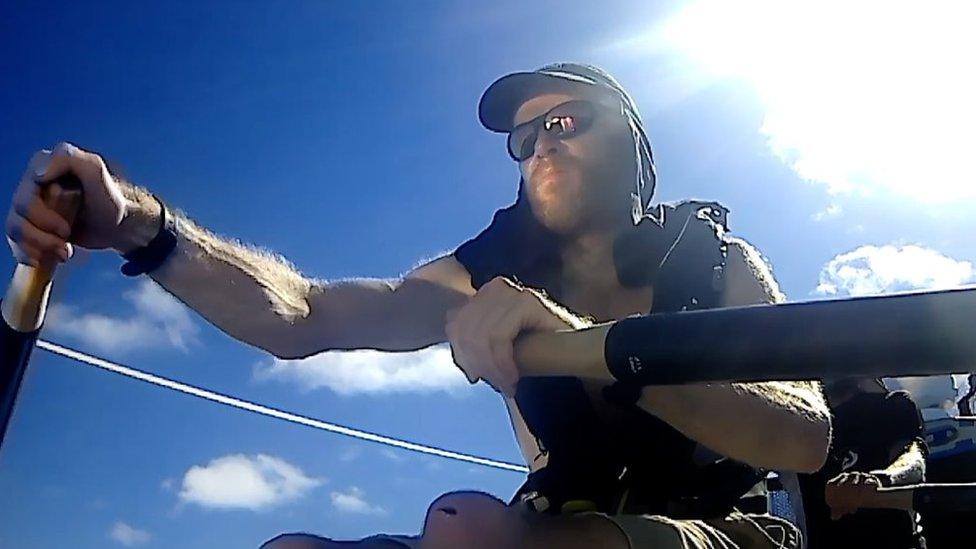Teenager Lukas Haitzmann sets world record in Atlantic row
- Published
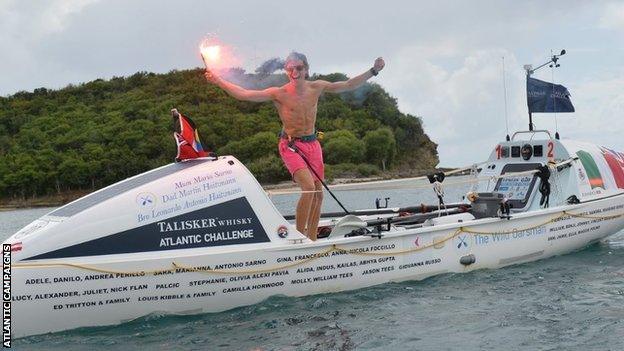
18 years old - 3,000 miles in 59 days, 8 hours and 22 minutes - a new world record
At the age of 18, student Lukas Haitzmann has set a new world record by becoming the youngest person to row solo across the Atlantic Ocean - or any ocean for that matter.
The British-Italian-Austrian teenager set off on his 3,000-mile journey from the Canary Islands in December, finally docking in Antigua on Saturday.
Haitzmann becomes the youngest winner of the solo Talisker Whisky Atlantic Challenge, after a gruelling 59 days, 8 hours and 22 minutes at sea.
BBC Sport managed to reach Lukas in Antigua and spoke to him once he had enjoyed a good meal...
BBC Sport: Hi Lukas! So you completed your epic journey three days ago, how are you feeling now?!
Lukas: Not too bad actually, I'm still a little sore but Antigua is a stunning place to recover so it could be worse.
I ate two HUGE burgers with bacon and some Austrian ham as soon as I got on dry land. They were amazing. I lost 10 kilos during the race (he weighed 75 kg before) so I definitely needed both burgers!
BBC Sport: They sound incredible. So was going without good food one of the toughest parts of the challenge?
Lukas: The food wasn't great - I've been rehydrating freeze dried meals which is essentially astronaut food, and topping myself up with protein bars occasionally to give myself something to actually bite.
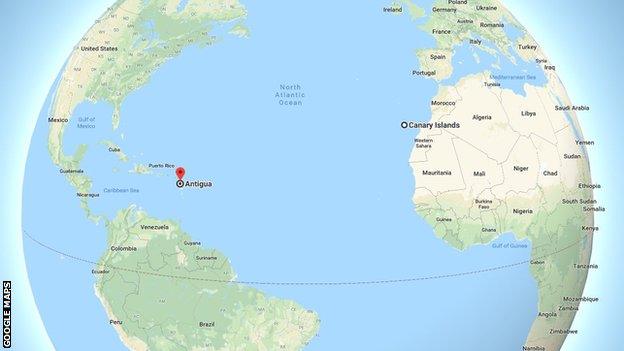
And then there's the toilet situation. As us rowers say - "bucket and chuck it"!
But the hardest thing was my electric water filter, which converts sea water to drinking water, broke meaning I had to manually pump my water for 10 days.
So on top of rowing 12-14 hours a day it took about an hour of heavy pumping every day, adding to my exhaustion. That was for sure the hardest thing.
BBC Sport: That sounds like it could have been a dangerous situation. How did you manage to fix it?
Lukas: I was able to speak to engineers over my satellite phone and they talked me through how to fix the electric pump. I am planning to study extreme sports engineering at university in September so it actually was great experience for me.
BBC Sport: Finding the positive in a difficult situation - did maintaining that kind of attitude help you on your journey? Did you ever find yourself lonely or scared?
Lukas: Well put it this way, at times it was a lot more difficult than I anticipated, but I just kept thinking, 'I put myself up for this challenge so I can't start complaining when it gets hard'.
I was able to to contact my Mum on the satellite phone every now and again but the isolation was a bit of a shock to the system.
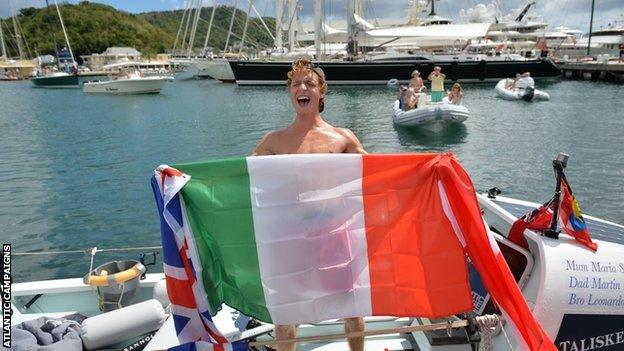
Lukas rowed for up to 14 hours per day without stopping.
As an 18-year-old, I am used to being in constant contact with people on social media or even just having something to listen to, but there were times when I suddenly thought to myself, "bloody hell, I'm really alone".
My music ran out after a month so I had to do the second half of the trip in silence but after I got used to it, it was really peaceful.
I obviously prefer to be around people but you never really get the chance to be alone and I did appreciate the freedom of nature and the break from social media.
I am going sailing for a few days with friends now so I'm definitely not sick of the ocean! You discover a new found love of water when you are surrounded by it.
BBC Sport: Is that one of the reasons why you undertook this challenge in the first place?
Lukas: Well, I am dyslexic, and when you're a young kid, it is scary to be told you will find it really hard to read or write, so you sort of give up.
I used to use my dyslexia as an excuse for not achieving, or worse, for not trying something in the first place.
I look back and realise I had so many opportunities that I just assumed would be too hard to overcome, so I just didn't take them.
But when I started taking on challenges, purposely putting myself outside of my comfort zone, I felt an amazing sense of achievement and it grew from there.
I realised I may not be able to read or write as quickly or as perfectly as other people, but I can do all these other things.
As cheesy as it sounds, I want to show other young kids with dyslexia that you should not be afraid to prove people wrong.
Doing challenges like this are a huge burden on the body, but the mental resilience you find will come in handy.
- Attribution
- Published17 January 2019
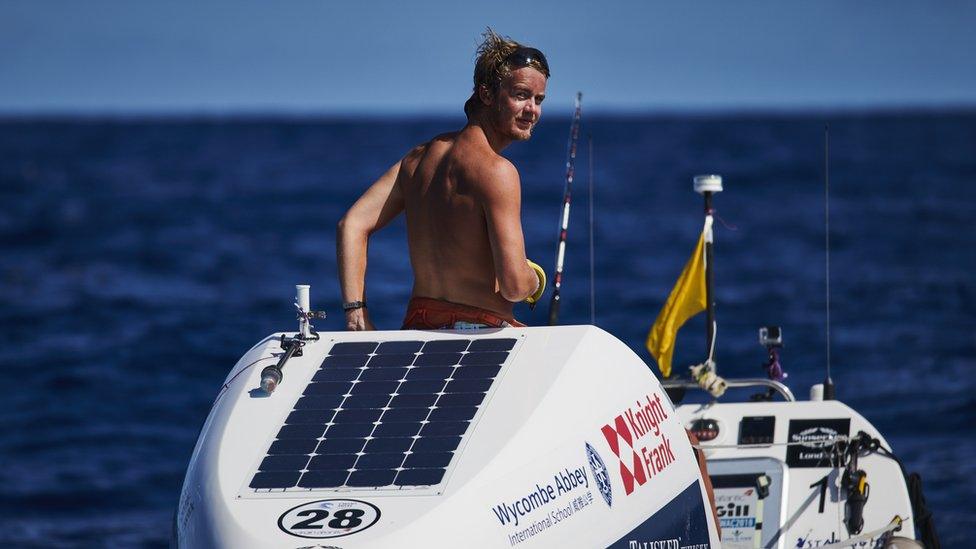
- Published12 February 2019

- Attribution
- Published4 December 2018
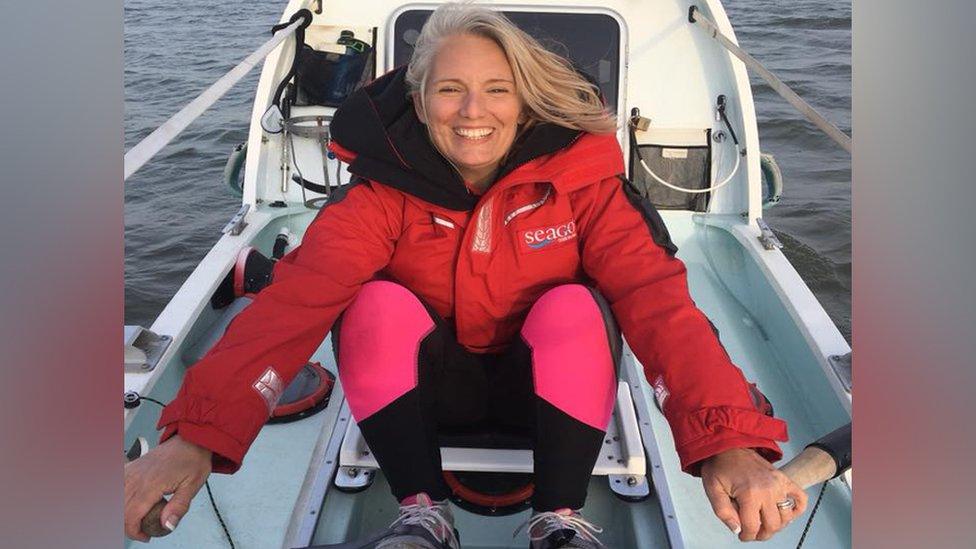
- Attribution
- Published14 January 2019
